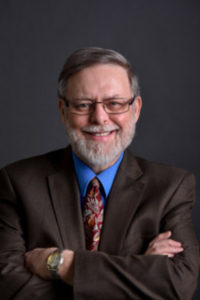Why we believe in Natural Theology: Credo Colloquy with Craig Carter and Matthew Barrett
Welcome back to the Credo Colloquy, exclusive dialogues between Credo Fellows. In this new series, leading theologians engage one another on some of the most important issues in theology facing the church. The previous colloquy with Credo Fellow Craig Carter explained why biblicism is not the same as biblical authority and therefore must be rejected. In this second colloquy, Craig Carter joins Matthew Barrett once more but this time to discuss natural theology, or what can be known about God through human reason. Contrary to popular belief, natural theology has a rich history within the Protestant tradition. It is based on the idea that human reason can discern certain truths about God from the natural world. Natural theology is supported by the scriptures when David exclaims, “the heavens declare the glory of God.”
Carter and Barrett also engage the church fathers and Protestant Scholastics, observing how the Great Tradition affirmed and utilized natural theology. For instance, classical theology often appealed to philosophical concepts such as the “logos” to explain the rationality of the universe as evidence of God’s existence.
However, Carter highlights a recent trend where natural theology has been largely neglected in evangelical, even reformed seminaries and theological textbooks. In the 20th century both Karl Barth and Cornelius Van Til rejected the classical use of natural theology, though each in his own way, which had a significant impact on modern Reformed theology. Carter questions the compatibility of such novel views with the classically Reformed theology of the 16th and 17th centuries, particularly the Westminster standards. He suggests that this abandonment of natural theology is a departure from the historical Protestant tradition.
By the end of this conversation, Carter and Barrett propose that Christians today must reject the prevailing metaphysical worldview of modernism, which denies creation ex nihilo and posits a universe (and God) in constant flux. Such a modern metaphysic is at odds with classical Christian theology which believes an immutable, eternal God created the world out of nothing, a world that depends on him to live and move and have its being. With the help of the Great Tradition we must be so bold to tear down the metaphysic of modernism and rebuild the metaphysical foundation of classical Christianity.
Craig A. Carter is the author of Interpreting Scripture with the Great Tradition: Recovering the Genius of Premodern Exegesis and Contemplating God with the Great Tradition: Recovering Trinitarian Classical Theism. He is currently writing a third volume in the Great Tradition trilogy on the recovery of Nicene metaphysics. He serves as Research Professor of Theology at Tyndale University in Toronto.
Matthew Barrett is the editor-in-chief of Credo Magazine and host of the Credo podcast. He is associate professor of Christian theology at Midwestern Baptist Theological Seminary and Director of the Center for Classical Theology. He is the author of the award-winning Simply Trinity and his new book is called, The Reformation as Renewal. He is currently writing a Systematic Theology (Baker Academic).
 Craig A. Carter
Craig A. Carter